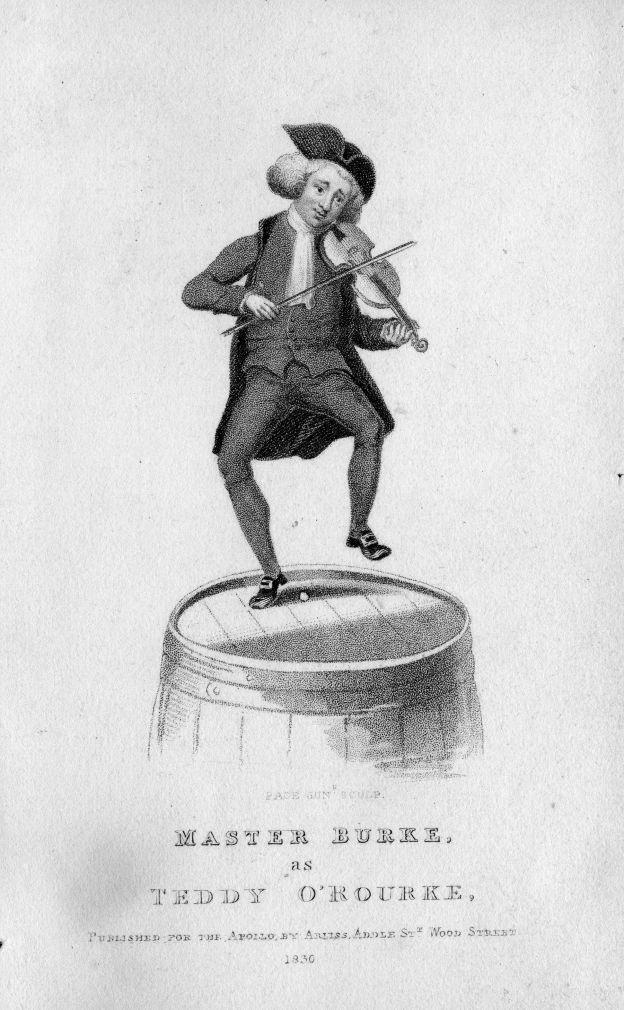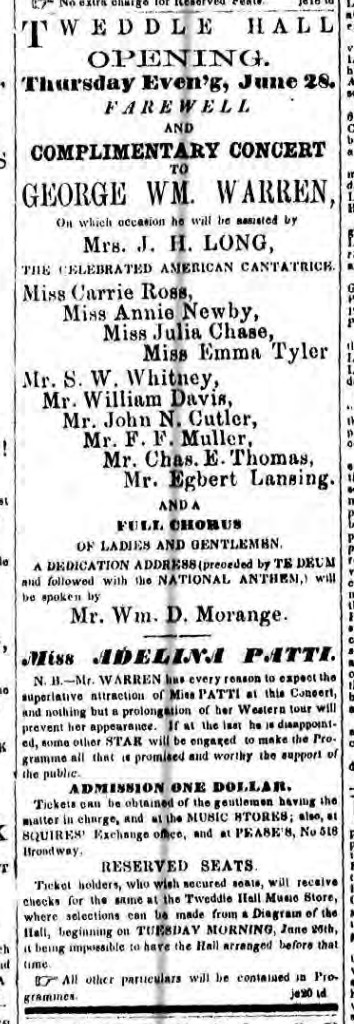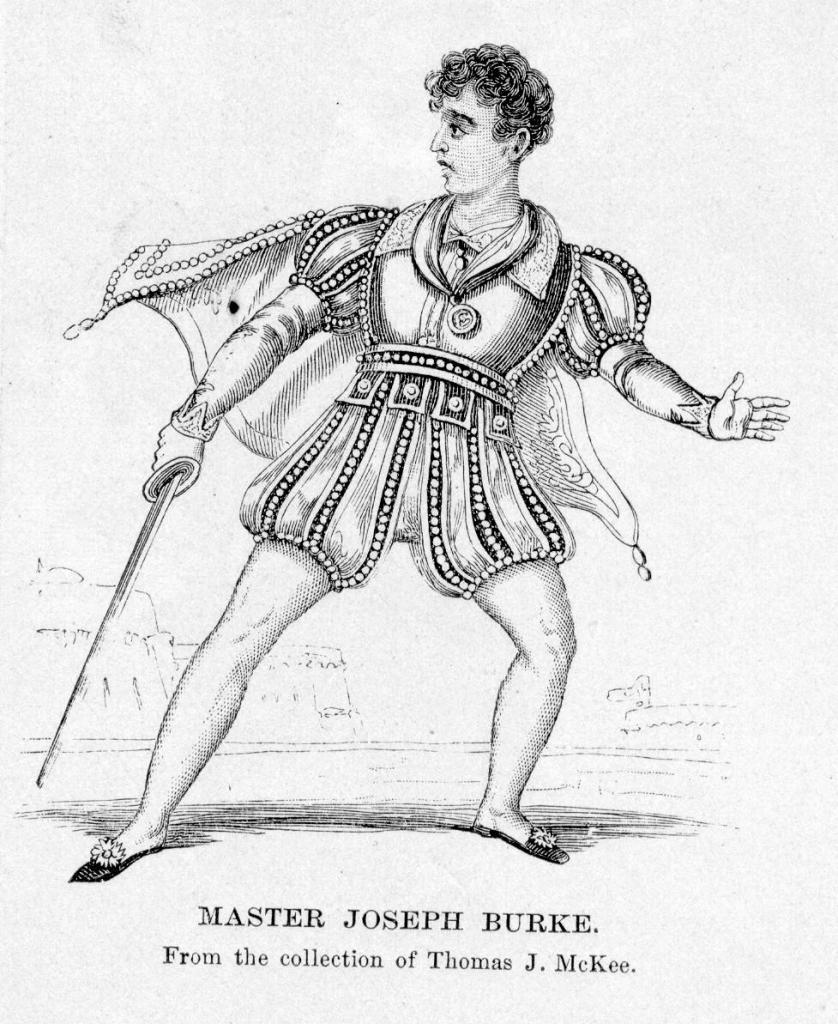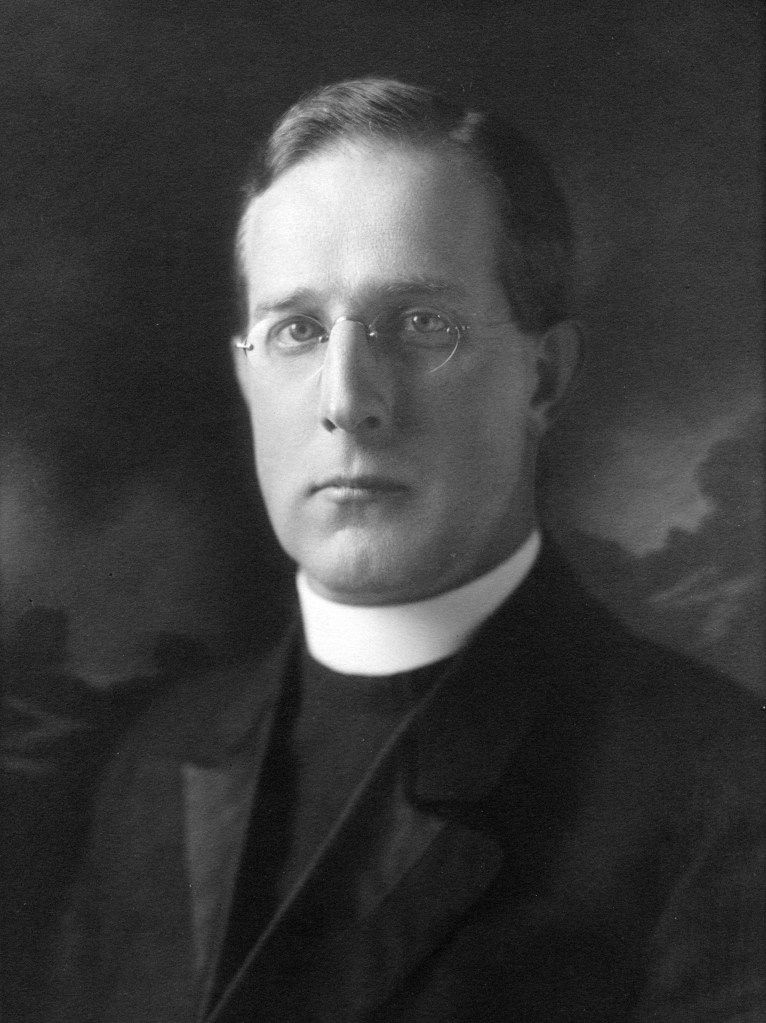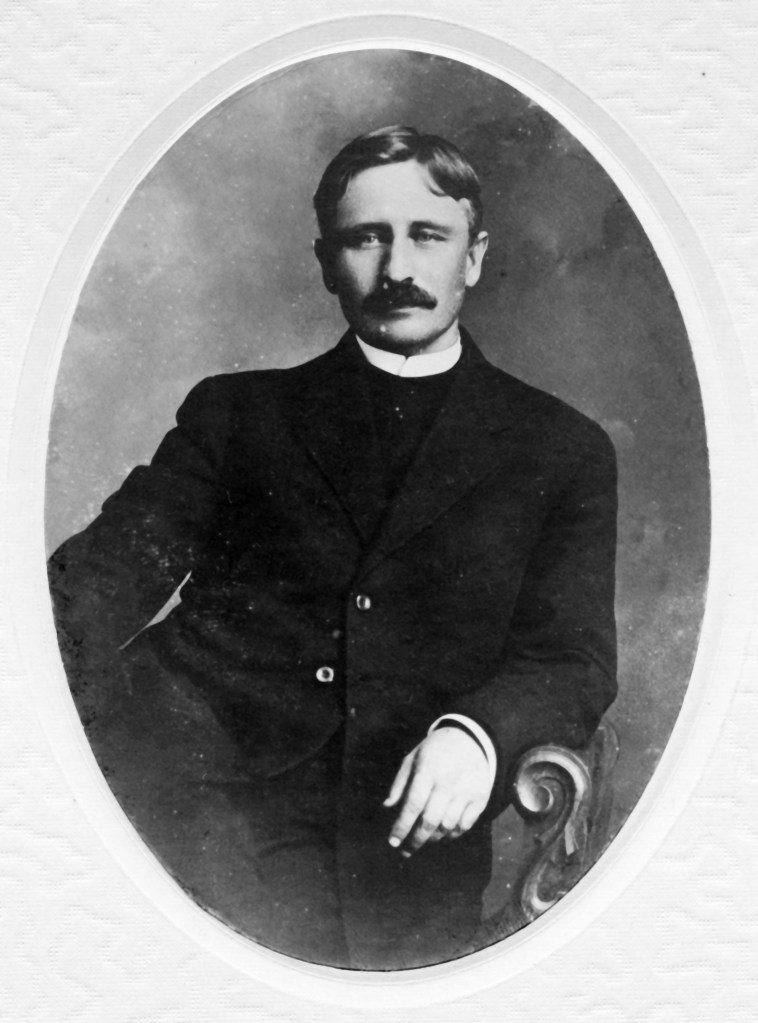Albany had a rich cultural life in the first half of the 19th century, as business from the Erie Canal made the city a hub of commercial and artistic life. I’ve written about some of the famous actors who appeared in the Albany Theatre, and most recently about composer and virtuoso pianist Louis Moreau Gottschalk’s friendship with George William Warren, St. Paul’s organist and choirmaster from 1848 until 1860. But there was another international star whose strong ties to the city of Albany have become obscured by time.
When George William Warren resigned his position at St. Paul’s in 1860, heading for his new position in Brooklyn, his native city could not bid him farewell quietly. A huge “Farewell and Complimentary Concert” was organized in Warren’s honor, to be held June 28, 1860 in conjunction with the dedication of Tweddle Hall, on the northwest corner of State and North Pearl Streets.
A highlight of the event was the Dedication Address, written and recited by William D. Morange. This was an extended verse oration, beginning with a recital of Albany’s early history, and reaching its climax with a description of the city’s glories in the mid-19th century. Among those mentioned, of course, was the night’s honoree:
Here Warren – gifted George, the child of art The genial artist, with the mammoth heart – Whose soul all music, when his boyish hand, Tinkled the triangle in Joe Burke’s band, Is brimming o’er with jolly music now, When artist laurels deck his manly brow – Here Warren lives, whom all the world admires, Whose very presence pleases and inspires. William D. Morange, A Poem Delivered at the Complimentary Concert to Geo. Wm. Warren (Albany: Munsell & Rowland, 1860), 13.
Who, I wondered, was Joe Burke? And what this this band in which a youthful Warren performed? We have another clue. In 1865, Warren dedicated his “Song of the Brook: Pastorale for the Piano Forte” with the words “Homage from an old student to Joseph Burke.” We know that Warren had very little formal musical education, so discovering one of his teachers is exciting. But it is far more interesting to find an international star who enriched Albany’s cultural life.
When Joseph Burke first visited Albany in 1831, the thirteen year old was already an experienced public performer. Master Burke (as he was then styled) had been playing the violin since age 3, and had appeared in theaters in Great Britain and Europe since age 5, acting in roles usually reserved for adults. Born in Ireland, Burke was brought to this country by his parents in 1830. He first appeared in the Albany Theatre on June 20, 1831, acting in two plays and conducting the orchestra in an overture between the plays. During the 1830s, Burke appeared four additional times on the stage of the Albany Theatre, and developed close friendships here.[1]
Burke acted and played across the United States until 1838, when he abruptly left the stage. We do not know why Burke quit acting, but his impresario father may no longer have been able to market a man of age twenty as a child prodigy. There are also clues that Joseph’s father had lived extravagantly on his son’s income, and may have amassed considerable debt. Certainly, in later life Joseph Burke adamantly refused to discuss his time on the stage.[2] No matter the reason, in 1840 Joseph Burke settled in Albany, and began to study law in the offices of William L. Marcy, the former governor of New York.
While Joseph Burke gave up acting in 1840, he did not give up music. In addition to his law studies, he performed on the violin, conducted and (as we have seen) taught music. Burke was a force in forming and developing the Concordia Society, an amateur orchestra that played four concerts a year in Albany between 1840 and 1844. This, apparently, is the “band” in which George William Warren played. Burke was the orchestra’s leader (that is, concertmaster) for the first season, and also its conductor for the remaining three seasons. He performed solos at each concert, and routinely received rave reviews from local music critics.[3]

Although he was admitted to the bar, Burke never practiced law. Instead, in 1844 he decided to further his musical career. He traveled to Belgium, where he studied with the great violinist and composer, Charles Auguste de Bériot. Returning to this country in 1845, Burke intended to give his grand first concert in New York City, but he was convinced to perform it first in Albany by a letter he received signed by forty-three prominent Albanians, the list headed by Thomas W. Olcott, Gideon Hawley, John Van Buren and Thurlow Weed. This distinguished group wrote that they:
“feel that a claim upon you, arising from intimacy and personal friendship formed during your long residence in this city, warrant them in soliciting you to modify your arrangements so far as to make your first appearance before an Albany audience”[4]
Responding to this heartfelt plea, Burke agreed,
“[A]s I admit with pride and pleasure the justice of what you are pleased to call your ‘claim’ upon me I without hesitation accede to your flattering request.”[5]
Burke then set off on a series of successful concert tours across the United States. In 1850, he signed a contract with P.T. Barnum to perform with soprano Jenny Lind on her American tours.[6] Rumor has it that he fell deeply in love with Jenny Lind, but was never able to express his feelings to her. When she married another man, Burke was heart-broken and never married.[7] He lived the rest of his life in New York City, performing and teaching violin, while spending his summers at his farm in Batavia, New York. A highlight of Burke’s career was the United States premier of the Mendelssohn violin concerto, which he performed with the New York Philharmonic on November 24, 1849[8].
Burke’s last concert in Albany was in 1859, but he continued to visit the city regularly. When he died in 1902, the Albany Argus published a lengthy obituary, recalling in detail his connections to the city. And Burke clearly retained an affection for this city and its people. Among his papers was found a “very carefully treasured” copy of that 1845 letter, begging him to perform his first concert following his return to Europe in this city of Albany.[9]
[1] Joseph Burke’s first engagement at the Albany Theatre extended from June into early July 1831. Subsequent appearances were in July 1833, February 1834, December 1836 and October 1837.
[2] The pianist and composer Richard Hoffman, said of his close friend, “After he gave up the stage, which was in the thirties, he could never bear to refer to the time when he was an actor. As soon as he ceased to be a child and to act as a child phenomenon, he had a disgust for the theatre.” “Joseph Burke’s Varied Life,” Sun and New York Press 26 Jan 1902, 32. And in 1879, when Henry P. Phelps wrote Burke, asking for his recollections of his time on the Albany stage, he responded, “There is nothing of any possible interest in the way of personal incident or reminiscence, during my residence in Albany, that I recollect, to furnish you with. Perhaps some of ‘those who still remember me’ may, but I doubt it.” H.P. Phelps, Players of a Century (Albany: Joseph McDonough, 1880), 153-156.
[3] The group’s last concert for which I can find a notice was 7 Feb 1844. There is no further mention in local papers after that date, or any explanation of its fate.
[4] “Mr. Joseph Burke,” Argus 25 Nov 1845, 2.
[5] “Mr. Joseph Burke”.
[6] Native Albanian John Underner, St. Paul’s organist from 1846 until 1847, was Lind’s accompanist on these American tours.
[7] This story of unrequited love is gracefully told in Carl Carmer, “The Irish Wonder and the Swedish Nightingale,” in Dark Trees to the Wind (New York: William Sloane Associates, 1949), 151-165.
[8] A copy of the concert program may be seen at https://archives.nyphil.org/index.php/artifact/e82e06bd-9340-4831-9a29-85c1ea8767df-0.1
[9] “Why He Liked the Tribune,” New York Daily Tribune, 21 Jan 1902, 10.

